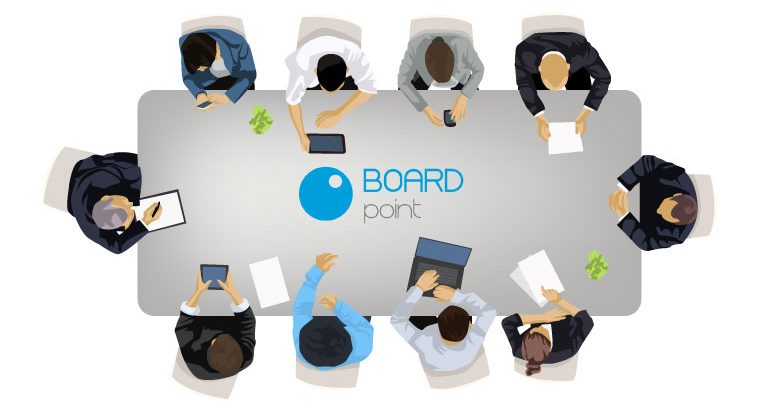In today’s fast-paced and highly competitive business landscape, the importance of strategic decision-making by the board of directors or governing bodies cannot be overstated. Whether steering the course of a corporation, a public entity, a government body, or a non-profit organization, these boards play a pivotal role in setting policies, defining strategic directions, and overseeing key decision-making processes.
However, amid the myriad complexities and challenges they face, ensuring that board meetings are conducted efficiently and effectively remains a pressing concern.
What are the common challenges in board meetings?
1.Distribution of necessary document materials
To begin with, it’s crucial to have all the necessary documents in one place. Often, these documents are spread out across different places, like emails or files. This makes preparing for the meeting difficult and wastes time. When everyone has to search for documents, it disrupts the meeting flow.
Plus, if someone doesn’t have access to a document, it can cause even more problems. Keeping everything in one central location, like a shared drive, makes the whole process much smoother.
2. Ensuring full participation
Each agenda item requires input from those most knowledgeable about the topic. That’s why having a clear list of meeting participants is crucial. But it’s not just about making the list – everyone needs the necessary information before the meeting. Knowing their role ahead of time helps everyone prepare. Whether in-person or online, having everyone ready and present ensures the meeting runs smoothly.
3. Agenda that has a purpose
The agenda sets the stage for productive engagement and efficient meeting dynamics. However, vital topics may be overlooked if the process of creating, submitting, and distributing agenda proposals could be more efficient. This can lead to meetings becoming unproductive, with participants questioning their necessity.

4. Maintaining meeting focus
While every meeting should adhere to a structured agenda provided to all participants in advance, deviations from the agenda are not uncommon. Introducing unrelated topics can lead to a loss of focus, prolonging the duration of the meeting and diminishing its productivity.
5. Repetitive meetings with no results
Often, topics discussed and tasks assigned in one meeting are revisited in subsequent meetings due to a lack of results. While decisions may be made and responsibilities delegated during meetings, the absence of a robust accountability system leads to tasks falling through the cracks. Without clear timelines and mechanisms for task execution, topics remain unresolved, perpetuating a cycle of repetition and inefficiency.
Tips for leading a successful board meeting
Now that we understand the challenges that board meetings face, let’s discuss how to lead one successfully. Here are a few tips that you should take into consideration before your next meeting:
Setting clear objectives
Before a board meeting, it’s essential to have a clear understanding of what you hope to achieve. Setting specific objectives provides a roadmap for the discussion and ensures everyone is on the same page. These objectives should be articulated at the outset of the meeting, allowing participants to align their contributions with the overall goals. Whether it’s making strategic decisions, brainstorming solutions to challenges, or reviewing progress on key initiatives, having well-defined objectives helps to focus the discussion and drive meaningful outcomes.
Preparing a well-structured agenda
It shouldn’t be surprising that a well-structured agenda lays the groundwork for a productive board meeting. It serves as a guide, outlining the topics to be covered and the order in which they will be addressed. By distributing the agenda in advance, participants can review the topics, and come prepared to contribute meaningfully to the discussion. This not only enhances the efficiency of the meeting but also promotes transparency and accountability.

Evaluation and accessibility of essential documents
The evaluation and accessibility of essential documents for board meetings are critical to ensure effective governance and decision-making.
Accessibility concerns include ensuring documents are available in multiple formats and are easily retrievable, enhancing inclusivity and participation among board members. A robust evaluation process streamlines meetings and fosters transparency and accountability within the organization’s governance framework.
Encouraging active participation
Creating an environment where all voices are heard and valued is crucial as a meeting facilitator. Encourage open dialogue by asking thought-provoking questions, inviting input from all participants, and actively listening to their contributions. By engaging everyone in the conversation and leveraging their unique insights and expertise, you can unlock innovative solutions and drive consensus on important issues.
Managing time effectively
Time is a precious resource in any board meeting, and effective time management is key to ensuring that discussions remain focused and productive. Keep conversations brief and clear, and gently steer them back if they start going off-topic. By respecting everyone’s time and ensuring the meeting runs smoothly, you’ll get the most out of your discussions and keep everyone engaged.
Reviewing previous meeting minutes
Taking a moment to review the minutes from the previous meeting sets the stage for continuity and accountability. It serves as a reminder of past discussions, decisions, and action items, ensuring that progress is tracked and follow-up tasks are addressed. By learning from past experiences and building upon previous decisions, you create a foundation for ongoing success and continuous improvement in future meetings.
How to successfully prepare for an upcoming board meeting?
As the famous saying goes, “Preparation is half the battle.” Given their significant role in shaping business strategies, preparing for upcoming board meetings is a pivotal aspect of organizational decision-making.
Advanced technological solutions help make navigating the complexities of board meetings more manageable and efficient. Board meeting software, such as BoardPoint, offers invaluable support throughout the preparation process. By providing a centralized platform for organizing meeting materials, accessing documents, and assigning tasks, BoardPoint streamlines the entire meeting management workflow.
Benefits of a board meeting software
To keep up with numerous ongoing tasks and projects you have to discuss during a board meeting, it’s not uncommon to struggle to stay organized and time efficient.
Managing agendas, coordinating participants, disseminating materials, and ensuring smooth decision-making processes can quickly become overwhelming without the right tools in place. Here is what you can expect to gain with a digital board meeting:

Efficient and easy preparation
BoardPoint simplifies the preparation process by providing a centralized platform for organizing meeting materials, disseminating relevant topics, and distributing necessary documents among participants. This ensures that board members are well-prepared and informed, leading to more productive meetings and faster decision-making.
Streamlined workflow
With BoardPoint, organizations can streamline their entire meeting management workflow. The software integrates seamlessly with various functionalities such as proposal creation, meeting scheduling, session management, and task assignment, all within one secure platform. This eliminates the need for disparate tools and manual processes, resulting in a more efficient and organized workflow.
Go paperless and digitize all processes
Imagine entering a board meeting and not seeing piles of paper stacked on top of each other. Instead, you have the meeting agenda accessible via tablet or desktop computer screen. With a paperless approach, every document, proposal, and decision is digitized and readily available at your fingertips. This streamlined process not only saves time and resources but also promotes a more organized and efficient meeting environment.
Start running successful board meetings – Download our free product overview!
With a user-centric design at its core, BoardPoint is tailored to facilitate more efficient planning and execution of meetings and sessions, seamlessly transitioning into a digital decision-making process. While organizers and participants face many challenges navigating these discussions, our platform offers innovative solutions to overcome them.
Embrace the power of advanced technological solutions and join the ranks of numerous companies, organizations, and government bodies that have revolutionized their board meeting processes with our platform.
Download our free product overview and learn how to run more efficient, effective, and successful board meetings!


